Latin America & Caribbean
Showing 99 results
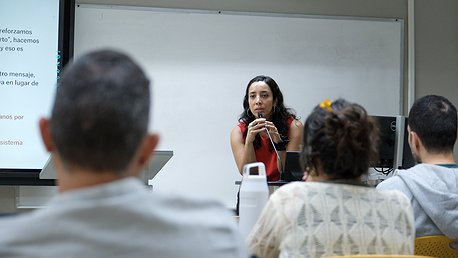
CESR and Puerto Rican movements build power through Escuelita de la Deuda
On November 8 and 9, 2025, our team participated in Escuelita de la Deuda (Debt School) in Puerto Rico.

Care as a human right: A new mandate to build gender-responsive public services
We welcome the Inter-American Court on Human Rights’ historic recognition of care as a human right.

Regional experts call for rights-centered international fiscal reform
As UN tax negotiations are set resume in a few months, a high-level dialogue in Santiago called for embedding human rights at the core of global and regional fiscal reform.

Key Voices: Defending economic justice in Ecuador—A conversation with CDES’ Eva Martínez-Acosta
From landmark legal victories against modern slavery to advocating for Indigenous rights in global economic forums, CDES is proving that organized communities can challenge unjust systems and drive systemic change.

New guide: How to influence the G20 agenda for Economic Justice
Our latest publication provides actionable insights and strategies for advocating within and beyond the G20 system.
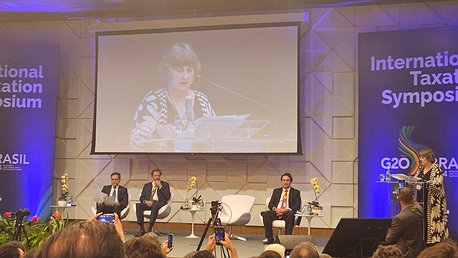
CESR and civil society allies present historic taxation recommendations to Brazil’s Finance Minister and G20 authorities
For the first time, the G20 Finance Track has directly received recommendations from civil society organizations, marking a historic moment in international tax policy discussions.
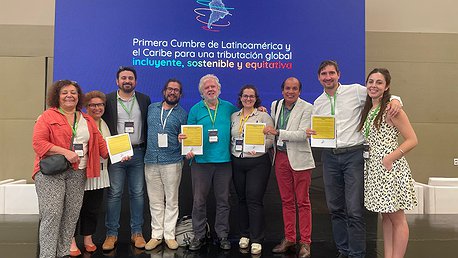
Latin America takes a historic step in recognizing human rights as the guiding framework for taxation
The first regional Summit for inclusive, equitable and sustainable taxation, led to the signing of a historic declaration to promote tax cooperation and the launching of a regional platform for that goal.
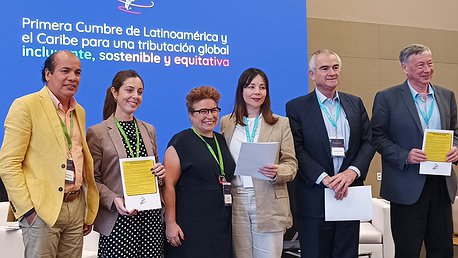
Cartagena Summit: A new platform for fiscal cooperation is born
Civil society enabled key debates about human rights in fiscal policy at the groundbreaking Cartagena Summit.
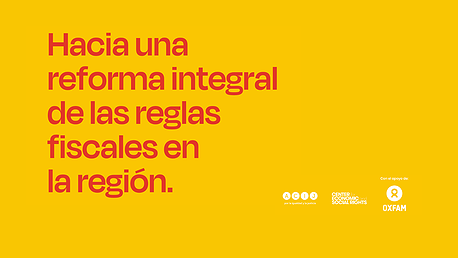
Toward comprehensive reform of fiscal rules in Latin America & the Caribbean
Publication co-authored by ACIJ and CESR which explores fiscal rules from a huma rights standpoint.
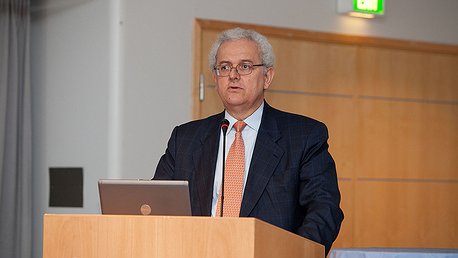
A golden opportunity for fiscal justice: CESR welcomes Colombia’s announcement of Latin America’s first global tax summit
We welcome Colombia's announcement of the first ever Ministerial tax summit for the Latin American and Caribbean region.
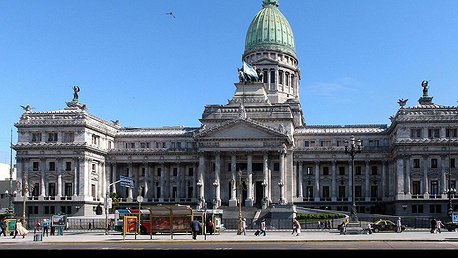
CESR and partners call for an end to unfair tax exemptions in Argentina
A statement signed by 17 organizations asks Congress to change tax exemptions.
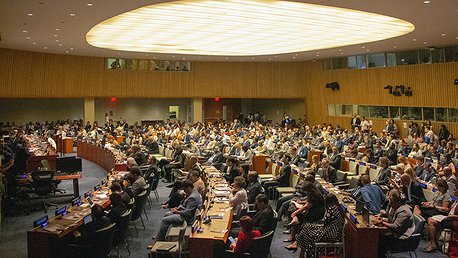
Call to Chile and Colombia to promote a new fiscal pact for Latin America and the Caribbean
In this joint statement, CESR and allies call on the governments of Chile and Colombia to lead the way towards fiscal justice in Latin America and the Caribbean.

Report: Fiscal Policy and Racial Justice in Latin America
In partnership with ILEX, we analyze the role of fiscal policies in addressing the multiple inequalities that affect Afro populations in Latin America.
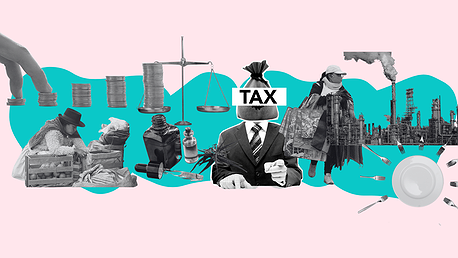
Join the 2nd Fiscal Justice & Human Rights Week!
Dialogues and workshops on taxes, budgets, and their links to human rights will take place on August 1-8 at the event series co-organized by CESR and allies.
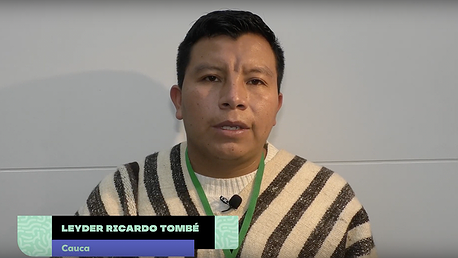
Strategizing with indigenous leaders from Peru and Colombia
Fiscal policies must include indigenousr rights. Watch the reflections of our latest workshop with indigenous leaders from the Amazon and Andes..

From Chile to the world: How the new Constitution can model debating fiscal justice and human rights
The process to draft a new Constitution in the Latin American country is showing how a fruitful public debate around the economy and human rights can happen.
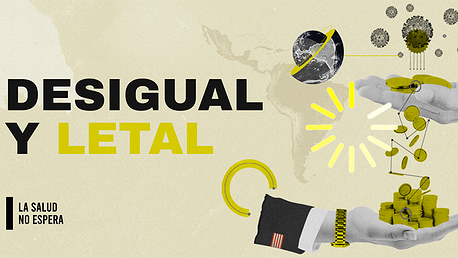
Desigual y Letal: 5 key actions to recover from the pandemic in Latin America & the Caribbean
Our joint report with Amnesty International shows that to address the impact of the pandemic and prepare for others in the future, it is vital to transform fiscal policies in the region.

Interrogating the Legitimacy of Argentina’s Debt
Following Argentina’s announcement of reaching an agreement with the IMF, there is a groundswell of public debate about the legitimacy and the human impact of such payments. Human rights have a lot to say in the matter,

Fiscal Policy Needs a Disability Approach: How Do We Make It Possible?
Alberto Vásquez and Karina Huertas propose an inclusive approach to fiscal policy.
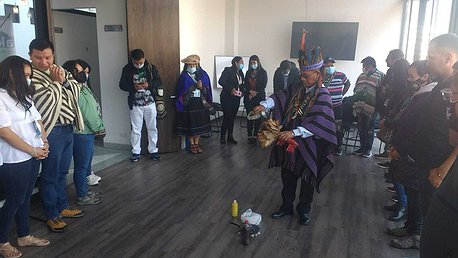
CESR Co-Organizes Strategic Meeting of Indigenous Leaders From Peru and Colombia
At the event, we highlighted how the Principles for Human Rights in Fiscal Policies can aid the claims of indigenous peoples.
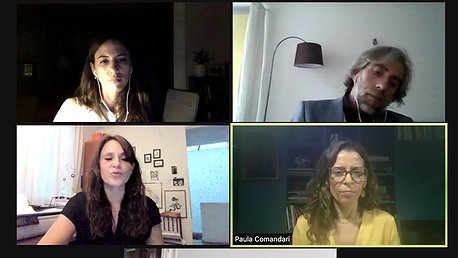
Webinar Series Addressess Chile’s New Constitution & Fiscal Justice
Co-Organized by CESR and allies, the encounters sparked debates on how to guarantee rights and fiscal justice in Chile's new legal body.
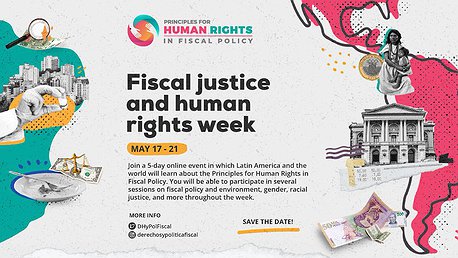
Join Us at the Fiscal Justice and Human Rights Week
Happening May 17-21, we are co-hosting a whole week of events to launch the Principles for Human Rights in Fiscal Policy.
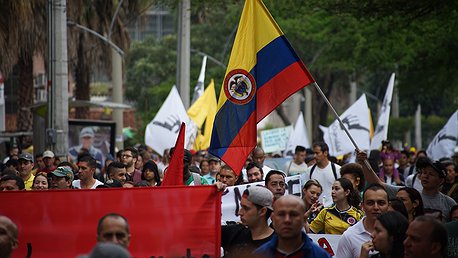
What Fiscal Reforms Is Latin America Clamoring for, and How Can We Make Them a Reality?
The current crisis in Colombia - where large-scale protests have been sparked by a proposed fiscal reform package - clearly shows the need for revitalizing the connection between fiscal policy and rights in the Latin American region and beyond. CESR is working with partners to do just this: opening tax debates to those whose rights are most affected by them.
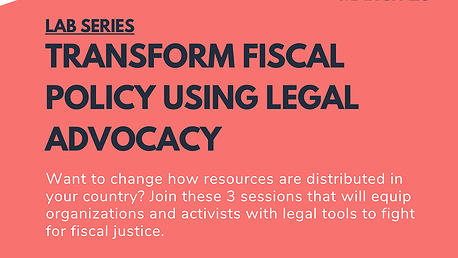
Transform Fiscal Policy Using Legal Advocacy - Lab Series
Between February 23rd and March 25th, CESR and allies will be hosting a series of laboratories on how to use litigation and legal advocacy to transform how resources are distributed.

Confronting COVID: How Civil Society is Responding Across Countries | Mexico
Máximo Ernesto Jaramillo-Molina of Fundar, Center of Analysis and Research explains the policy responses needed to respond to the pandemic in Mexico.
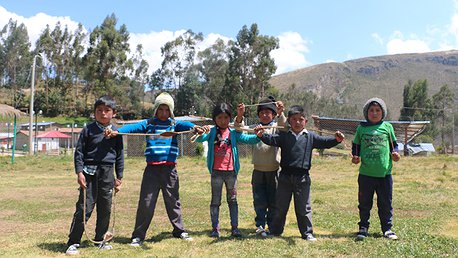
Fiscal justice and human rights: strengthening collective counterpower for a transformative recovery in Latin America and the Caribbean
Latin America will be the region most affected by the COVID-19 pandemic, suffering its worst crisis in the last hundred years ,and the impacts will affect a region that already suffers severe inequality.
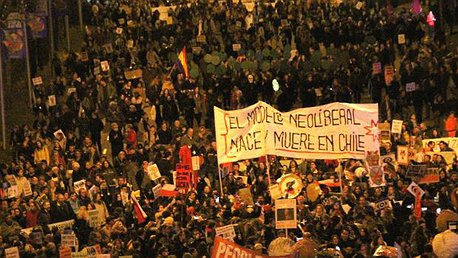
Dialogue on Human Rights and Fiscal Policy in the constituent process in Chile
The October 14th dialogue discussed the importance of addressing fiscal discussions in Chile’s constitutional reform process from a human rights perspective.
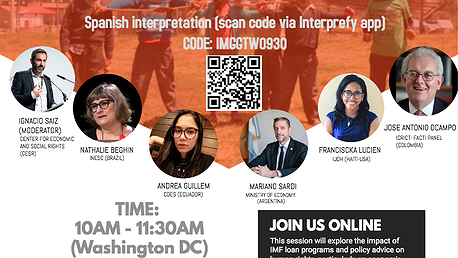
Will the IMF align with human rights and fiscal justice after COVID-19? Lessons from Latin America and the Caribbean
CESR co-organized an event at the Civil Society Policy Forum of the 2020 World Bank Group and IMF Annual Meetings exploring this question.

Confronting COVID: How Civil Society is Responding Across Countries | Brazil
The Fight for Human Rights in the Context of COVID-19: a tough ride for Brazilian civil society organizations. Guest blog by Livi Gerbase, policy advisor at the Instituto de Estudos Socioeconômicos (INESC).
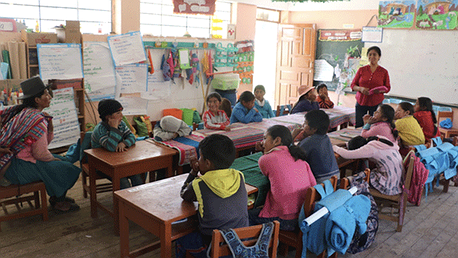
A Marathon, Not a Sprint: Peru Needs Fiscal Reforms to Quell High COVID-19 Death Rate
Sergio Chaparro and Laura Adriaensens on Inter Press Service discuss how Peru has been one of the Latin American countries with the lowest investment in social policies, leading to deep disparities in the realization of social rights.
CESR and Partners Hold Dialogues on Just Economic Recovery from COVID
The Initiative for Human Rights Principles in Fiscal Policy held a series of virtual dialogues with partners aimed at sharing tools and exploring opportunities to advocate for a just economic recovery from the COVID-19 crisis.

Confronting COVID: How Civil Society is Responding Across Countries | Colombia
Dejusticia's Alejandro Rodríguez Llach discusses the need for more comprehensive, rights-affirming income protections for Colombia's most vulnerable citizens, post-COVID.

Debt Justice Group to IMF: "Defuse Ecuador's Debt Time Bomb!"
A statement on the Progressive International website that was co-drafted by CESR's Allison Corkery, Sergio Chaparro and Ignacio Saiz with partners calls on the IMF to take responsibility for the impact of its disastrous austerity policies on people’s rights.

Austerity is Killing Ecuador. The IMF Must Help End this Disaster
An opinion piece in the Guardian by CESR's Allison Corkery with Andrés Chiriboga-Tejada, Jayati Ghosh, Demba Moussa and Adrian Falco, calls on the IMF to examine the human rights impacts of its loan conditions in Ecuador.
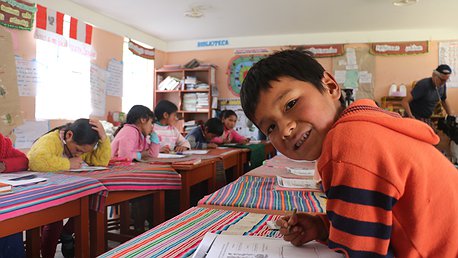
Forging Tools for Fiscal Justice in the Andean Region
Since 2016, CESR has worked with civil society partners in Peru and Colombia to build greater consensus on how public resources can be more equitably generated and distributed, in line with human rights obligations.
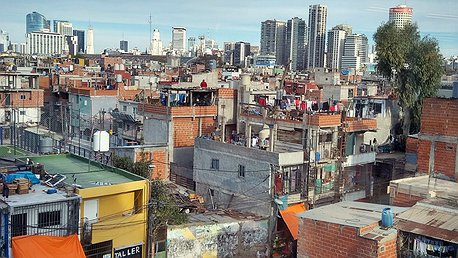
Confronting COVID: How Civil Society is Responding Across Countries | Argentina
Julieta Izcurdia of ACIJ argues for centering the rights of groups that suffer the most under COVID and for a fairer tax system in the long term.

Confronting COVID: How Civil Society is Responding Across Countries | Brazil
Grazielle David, of the Fiscal Justice Network of Latin America and the Caribbean, discusses Brazilian civil society's efforts to create fiscal space for rights funding in the face of longstanding austerity and the federal government's lack of coordinated responses to the pandemic.
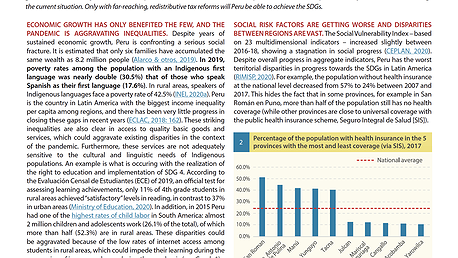
Peru: Financing a Just Recovery to Achieve the Sustainable Development Goals
Behind a facade of economic success, Peru hides deep multidimensional inequalities which jeopardize achievement of the 2030 Agenda.
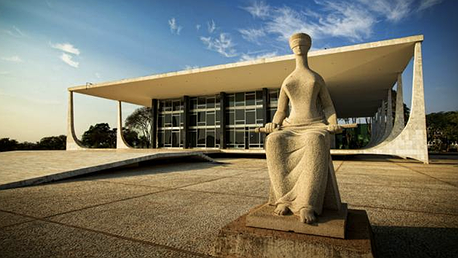
CESR Joins Judicial Action Against Devastating Brazilian Spending Freeze
CESR is supporting a coalition of 192 Brazilian civil society organizations and social justice groups as they file a judicial action against Brazil’s expenditure cap, which has had grievous effects on the wellbeing of many of Brazil’s citizens, especially in the midst of the COVID-19 pandemic.
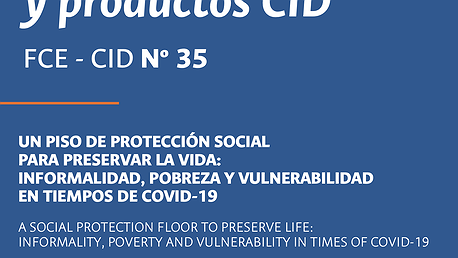
A Proposal for a COVID-19 Emergency Basic Income in Colombia Gains Traction
The National University of Colombia has published a proposal co-authored by CESR’s Sergio Chaparro for adopting an emergency basic income in Colombia.

A Comprehensive Response to COVID-19 Demands Redistributive Fiscal Policies
CESR and partners at the Initiative for Human Rights in Fiscal Policy in Latin America call on States to undertake broad fiscal redistribution in order to avoid dire human rights consequences of the COVID-19 crisis.
ESCR-Net Covers CESR's Dismantling the Dogmas
ESCR-Net covered CESR's Dismantling the Dogmas of Austerity and Fiscal Injustice in Latin America.

Fiscal Policy, Inequality and Human Rights in Peru
Peru's success story in terms of growth and poverty reduction requires a more nuanced evaluation, given persistent inequalities and the government's failure to guarantee social rights and ensure sustainable growth through sound fiscal practices. This short video offers two compelling examples of unjustified rights deprivations caused by the country's unfair fiscal and budgetary policies: the setbacks in bilingual intercultural education policy and the lack of adequate funding for cancer policies.
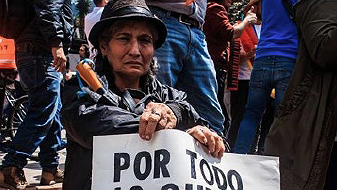
Dismantling the Dogmas: Tools for Tackling Austerity in Latin America
New briefing confronts head-on dogmas that are deployed against progressive structural fiscal reforms in Latin America.
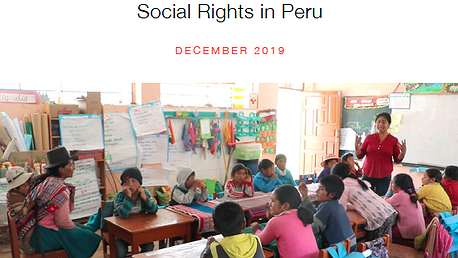
Resources Restricting Rights: Fiscal Policy, Inequality and Social Rights in Peru
Funding gaps for education and healthcare in Peru create significant obstacles to the guarantee of human rights and economic equality.
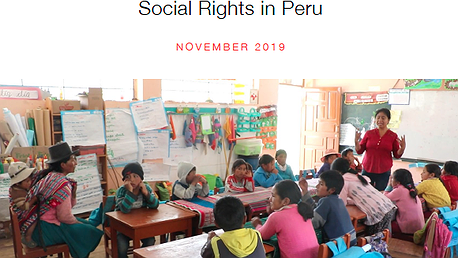
Unequal and Unjust: the Human Rights Costs of Tax and Budget Decisions in Peru
A new report from CESR finds that Peru’s unjust tax and budget policies threaten quality education for the country’s Indigenous children and restrict access to prompt cancer treatment for some underserved patients.
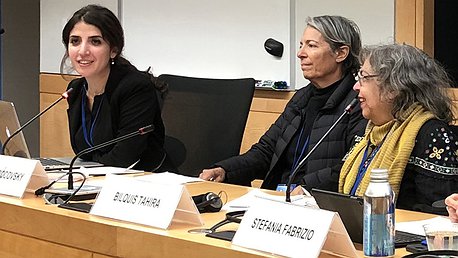
Austerity and the IMF: An Appeal for Responsibility
CESR and partners issued an urgent appeal to the IMF to halt its support for austerity measures and to assess their human rights impacts. We also brought evidence of austerity's unequal impacts to the recent IMF/World Bank Annual meetings.
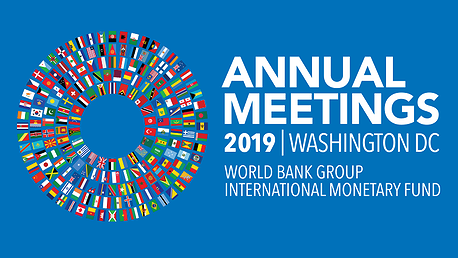
Lessons from Ecuador: Challenging Austerity and Human Rights Erosion at the IMF
CESR will be at the World Bank/IMF Annual Meetings this week, challenging the IMF’s global role in driving austerity measures that result in the steady erosion of human rights in countries such as Ecuador.
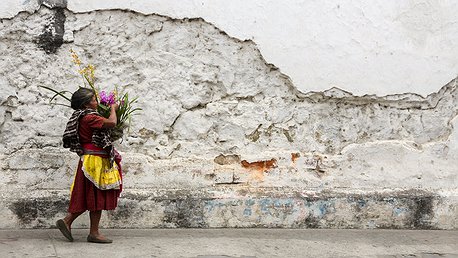
Fiscal Policy and the Rights of Indigenous and Afro-descendant Peoples
Video from workshop in Bogotá bringing together Indigenous and Afro-descendant leaders from Peru and Colombia to discuss the links between unjust fiscal policies, extractive industries, and the rights and wellbeing of these communities..
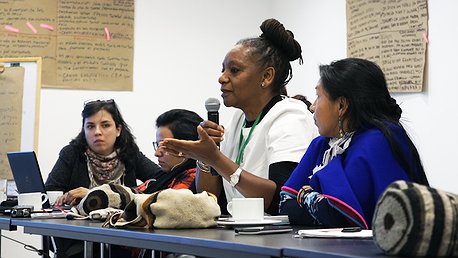
Linking Fiscal and Environmental Justice Agendas in the Andean Region
Environmental, socioeconomic and fiscal injustices in the Andean Region mutually reinforce each other, disproportionally affecting the rights and wellbeing of Indigenous peoples and Afro-descendant communities.
Financial Restrictions and Human Rights: the Case of Colombia
CESR's Sergio Chaparro recently published a chapter on "Financial restrictions and human rights: the case of Colombia" in the latest volume of the Journal of the Ministerio Público de la Defensa de la Ciudad de Buenos Aires.
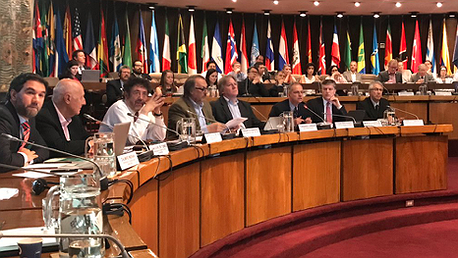
The State of Tax in Latin America: Massive Evasion and Avoidance Block Human Rights and Development
States are obligated to mobilize their maximum available resources to progressively advance rights and reduce disparities between the wealthy and the most disadvantaged.
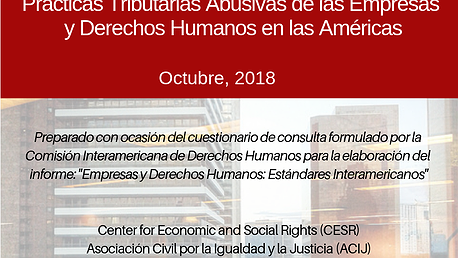
Abusive Tax Practices of Companies and Human Rights in the Americas
Abusive corporate tax practices are a structural obstacle to human rights fulfillment in the Americas.

New Human Rights and Fiscal Justice Initiative Calls for Global Corporate Tax Reforms
The Initiative for Human Rights Principles and Guidelines in Fiscal Policy in Latin America is demanding radical changes to the rules of global taxation in order to stop tax avoidance and the race to the bottom in corporate tax rates.
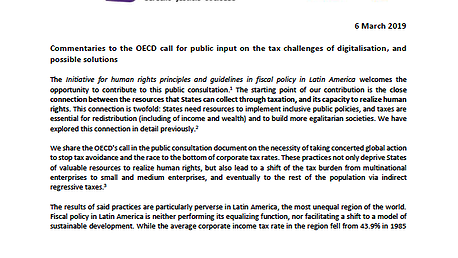
Submission to the OECD regarding the tax challenges of digitalization and possible solutions
Submission by the Initiative for Human Rights Principles and Guidelines in Fiscal Policy in Latin America to the OECD.
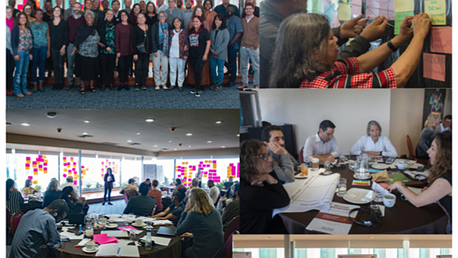
Beyond Boundaries: Allying human rights with other struggles for social and economic justice
The August 2018 international convening identified strategies for more dynamic engagement between economic and social rights actors and others working for similar goals.
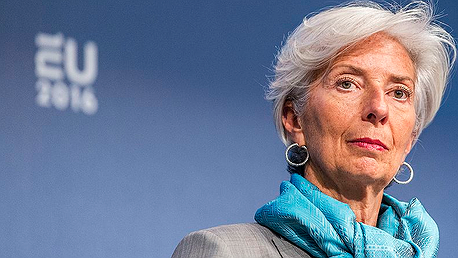
Argentina: the latest IMF austerity package belies Lagarde’s lip service to human rights
A World Leader Award from the Appeal of Conscience Foundation for IMF Managing Director Christine Lagarde is at odds with the IMF's role in promoting austerity packages around the world.
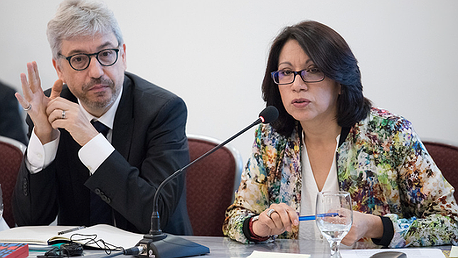
Latin American countries must reform their fiscal policies to guarantee human rights
Unjust fiscal policy measures adopted by some Latin American countries strip basic social protections from populations, creating rights deficits and sowing unrest.
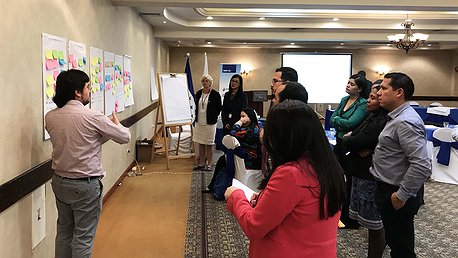
Latin American national human rights representatives trained in ESCR
CESR’s Mihir Mankad and Sergio Chaparro facilitated a regional training workshop on economic, social and cultural rights (ESCR) in Tegucigalpa, Honduras.

Fiscal Policies and the Safeguarding of Economic, Social and Cultural Rights in Latin America: Argentina, Brazil, Colombia and Peru
Fiscal Policies and the Safeguarding of Economic, Social and Cultural Rights in Latin America
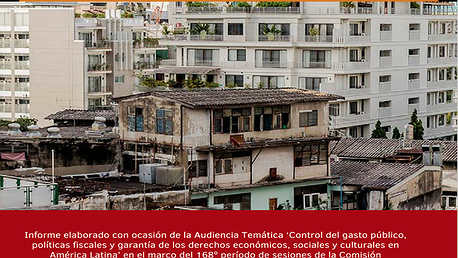
Executive summary of report to IACHR on fiscal policies and ESCR in Latin America
Executive summary for the thematic hearing on fiscal policy in Latin America for IACHR sessions.
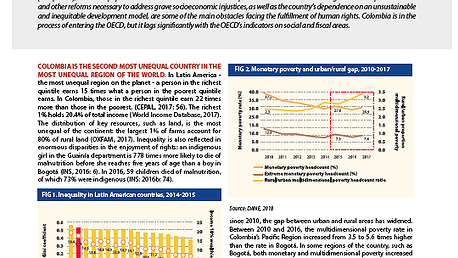
Colombia: Fiscal Policy, Peace and Human Rights
Colombia is in the process of entering the OECD, but lags on indicators in social and fiscal areas.

IACHR calls on states to adopt human rights-based fiscal policies to eradicate poverty
29 January: IACHR report acknowledges links between poverty and human rights in the Americas, referencing CESR-led coalition's briefing on relevance of fiscal policies.
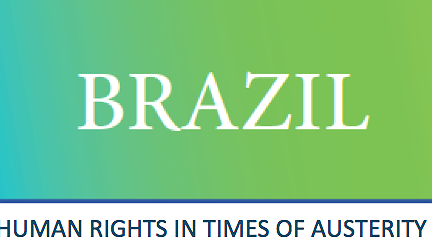
"Human Rights in Times of Austerity" covered in thirty Brazilian publications and websites
Media: New factsheet "Human Rights in Times of Austerity" received coverage from at least thirty Brazilian publications and websites in the past month.
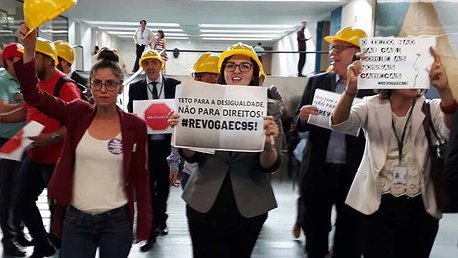
Brazil's austerity cap stunting rights to food, health and education
Press release: CESR and partners present new empirical findings on austerity’s severe impact on food security, health and education in Brazil.
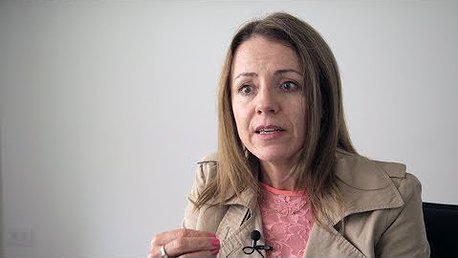
Fiscal Policy for Human Rights & Equality: Andean region
Civil society representatives from across the Andean region reflect on the importance of bringing human rights to bear in tax policy.
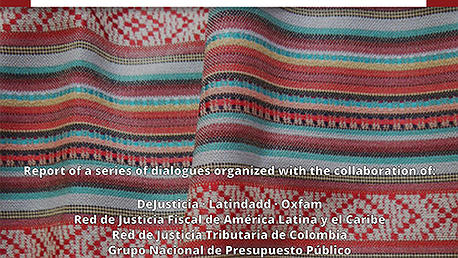
Andean region: towards a new fiscal reform agenda for equality and rights
New report: Fiscal Policy for Equality and Rights: Mapping debates, initiatives and actors in the Andean Region
Brazil: fiscal austerity freeze ‘lacks all compassion’
Concern is growing over the potentially devastating human rights impacts of Brazil’s newly-approved ‘PEC 55’ constitutional amendment, which will freeze public spending at current levels for the next twenty years.

Brazil: Social rights under siege
Brazil is on the cusp of making a constitutional amendment that will undermine fundamental human rights for generations to come.
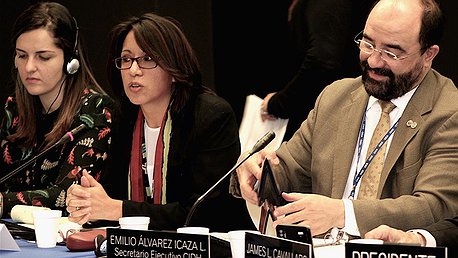
Rising to meet austerity’s onward march
17 May 2016: CESR and its partners organized a landmark event, Fiscal Policy and Human Rights in Times of Austerity, at the Inter-American Commission on Human Rights.
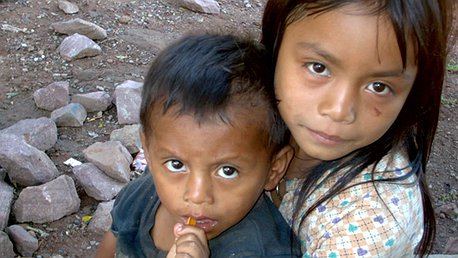
Assessing public policies from a human rights perspective: case study Guatemala
This case study explains how the OPERA methodology was deployed to to assess Guatemala’s compliance with its human rights commitments.
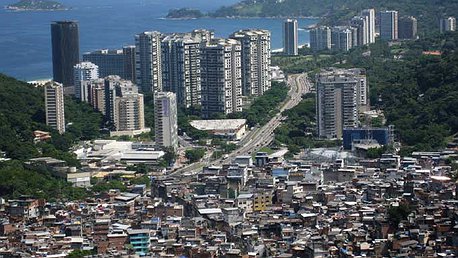
Fiscal Policy and Human Rights in the Americas
Invitation: CESR invites you to a thematic hearing before the Inter-American Commission on Human Rights examining the relationship between fiscal policy and human rights.

Rulings and realities: ensuring indigenous rights are respected
A recent ruling by the Inter-American Court of Human Rights (IACHR), in the case of The Kichwa People of Sarayaku v. Ecuador, marks an important landmark in the recognition of indigenous peoples’ rights and demonstrates the importance of using regional human rights mechanisms to enforce them..

Publications, Reports & Briefings
Bolivia goes hungry on World Food Day
CESR has collaborated on a new report addressing hunger and food insecurity in Bolivia.
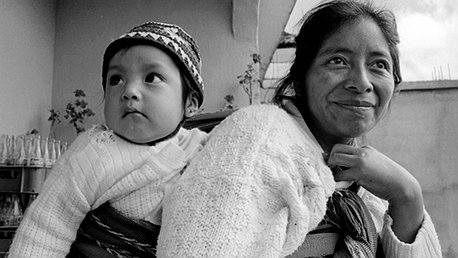
Elections in Guatemala: condemned to repeat history?
Jorge Santos looks forward to next Sunday's presidential elections and voices concerns over what the outcome may mean for normal people.
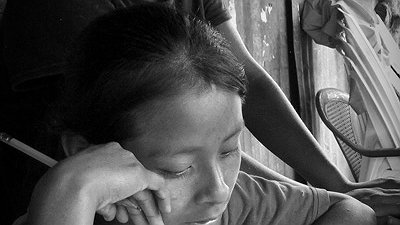
Maternal Mortality: Submission to the UN Office of the High Commissioner for Human Rights (OHCHR)
CESR's submission on best practices in addressing maternal mortality (2011).
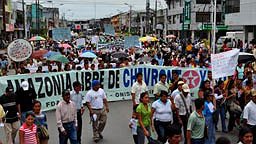
David vs Goliath in the Ecuadorian Amazon
Oil giant Chevron is ordered to pay US$9 billion compensation for the environmental and health impacts of oil contamination in the Amazon. CESR Co-founder Chris Jochnick reflects on the judgment.

International Mission Focuses on Right to Food in Bolivia
Bolivia has one of the highest rates of chronic malnutrition in Latin America and the Caribbean, which affects 27 percent of children under five.
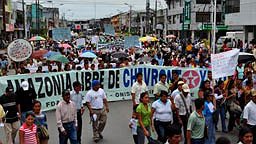
Local justice in Ecuador advances global struggle for corporate accountability
Oil giant Chevron is ordered to pay US$9 billion compensation for the environmental and health impacts of oil contamination in the Amazon.
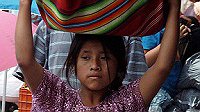
Guatemala: Joint Submission to the UN Human Rights Committee
Produced with Planned Parenthood abd the Multidisciplinary Group on Sexual and Reproductive Rights of Guatemala.

Ecuador Is First Country to Ratify the Optional Protocol to the ICESCR
New mechanism will ensure that victims of economic rights violations have the right to an effective remedy.
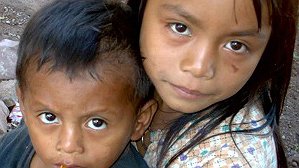
Guatemala: Submission to UN Committee on the Rights of the Child (CRC)
CESR's joint submission with Instituto Centroamericano de Estudios Fiscales (ICEFI) to the UN Committee on the Rights of the Child.

Haiti, one month on: rethinking the model
Haitian human rights and development organizations are calling for a different vision of development aid in the aftermath of the earthquake.
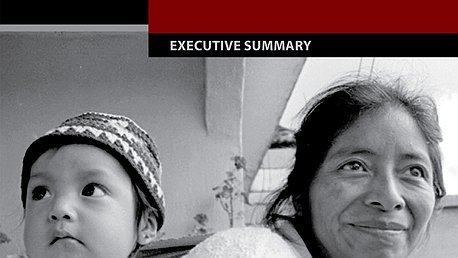
Publications, Reports & Briefings
Guatemala: Rights or Privileges?
Fiscal commitments and the rights to food, health and education in Guatemala (2009).
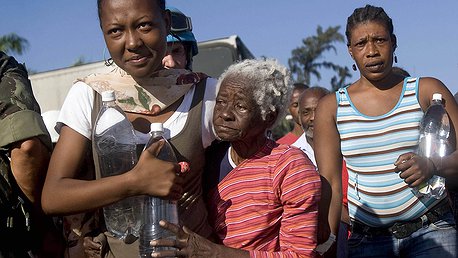
Integrating rights into budget processes in Haiti
CESR and the OHCHR trained people on budget monitoring from a human rights perspective in Haiti in 2009.
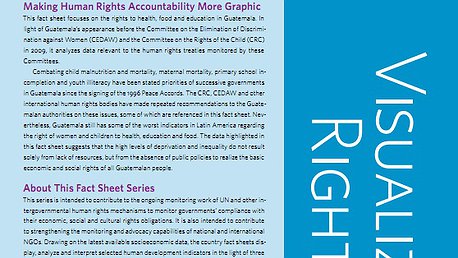
Guatemala Factsheet
This 2008 factsheet focuses on the rights to health, food and education in Guatemala.

World's largest environmental lawsuit in Ecuador against Chevron
Ecuador's citizens seek redress for oil company's economic and social rights violations.
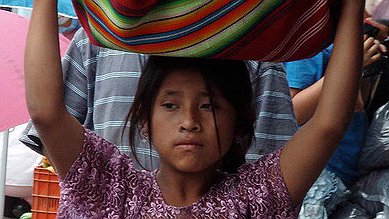
Publications, Reports & Briefings
Guatemalan State systematically violates economic and social rights of citizens
New CESR study on health, education and food says fiscal and tax policy is largely responsible.
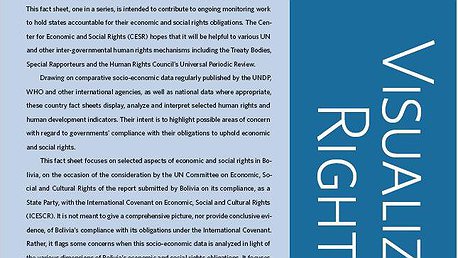
Bolivia Factsheet
Inequality in education and health, and regional disparities in child mortality, in Bolivia are striking.

Guatemala: Submission to the UPR
Submission by CESR and Instituto Centroamericano de Estudios Fiscales (ICEFI) to the Universal Periodic Review, May 2008
Publications, Reports & Briefings
The Price of Gold: Gold Mining & Human Rights in Honduras
2001 report on a CESR investigation to the current operation of the gold mining industry in Honduras since the passage of the General Mining Law in November 1998.
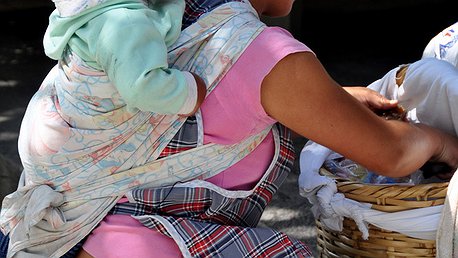
Ecuador Case Study
Case study on the state of economic, social and cultural rights in Ecuador, 1999.

Publications, Reports & Briefings
The Right to Health in Ecuador
In 1999 CESR investigated the impact ofthe petroleum industry on the communities of the Ecuadorian Amazon.
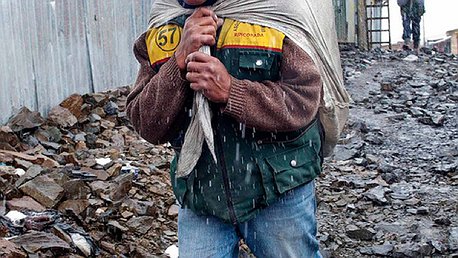
Publications, Reports & Briefings
Economic and Social Rights Violations in Peru
This report focuses on the Inter-American Commission's role in promoting economic, social, and cultural rights in Peru.
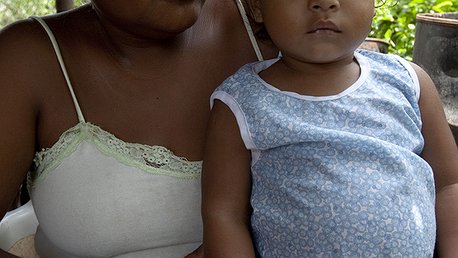
CESR Submission to the Committee on the Rights of the Child: Consideration of Report by Ecuador
Comments based on the report 'From Needs to Rights: Recognizing the Right to Health in Ecuador'.
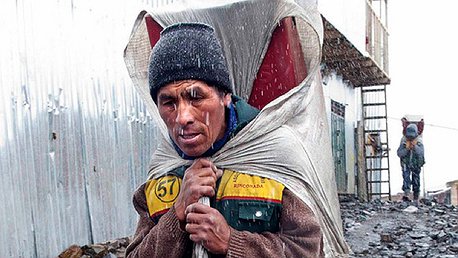
CESR Statement on Peru before the Committee on ESCR
This statement on Peru was made to the Committee on Economic, Social, and Cultural Rights at the UN in April, 1997.

Publications, Reports & Briefings
Rights Violations in the Ecuadorian Amazon: The Human Consequences of Oil Development
Rights Violations in the Ecuadorian Amazon: The Human Consequences of Oil Development is a 1994 report examining the role of the government of Ecuador and US oil companies in violating rights to health and a healthy environment.

